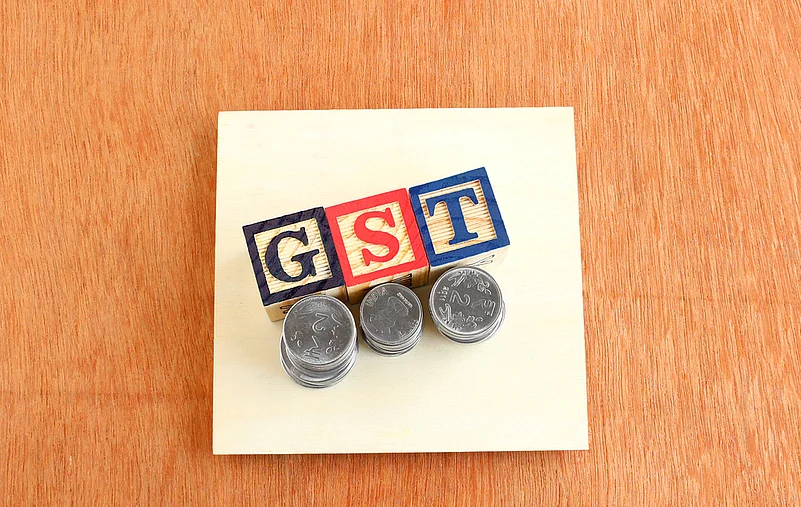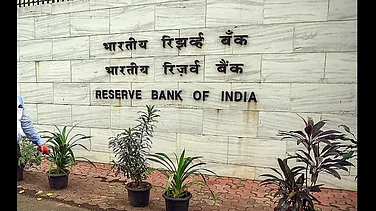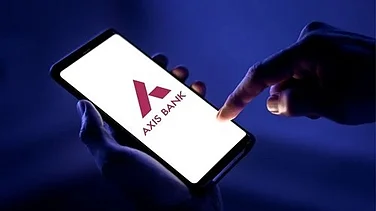With India being a favoured market world over for back office support services by Business Process Outsourcing (BPO) and Knowledge Process Outsourcing (KPO) businesses, the segment has grown by leaps and bound from the time of its inception in the mid-90s. There are several factors which have cumulatively contributed to this growth such as economy of scale, cost advantage and technical competency. One contributing factor is also the tax benefits enjoyed by the sector owing to such operations being zero rated under GST as export of service.
With this being the settled state of affairs, recent developments in GST law may have far reaching implications on such operations thus unsettling the position. There may be an imminent need for such companies to reorganise their operations in this field as these developments have a direct impact on the zero rating under GST currently enjoyed by such companies. This is triggered by a spate of advance rulings on “intermediary services” and a recent Circular issued by CBIC which seeks to “clarify” the legal position.
It was the advance ruling by the Maharashtra Advance Ruling Authority (AAR) in the case of VservGlobal Private Limited upheld by the Appellate Advance Ruling Authority (AAAR) which first sparked the debate. The AAR held that the services qualified as intermediary services as the sum of the back-end office support services to overseas clients (e.g: liaising with client's buyers/suppliers with respect to delivery, transportation of goods and settlement of payment between them) indicated facilitation of supply between clients and their customers.
In effect, the above ruling has held that back office support services would qualify as intermediary service thereby widened the playing field of such services. This raised concerns in the industry by way of disqualifying such services from zero rating under GST.
The ruling created a major unrest amongst several multinational companies engaged in providing back-end office support services with the fear of being taxed at the rate of 18 per cent GST looming large.
The field was further unsettled with the following advance rulings wherein the nature of services being provided by the Applicant was held to not fall under 'Intermediary Services' as such services were not facilitating the supply and as the Applicant was providing services on its own account:
- Asahi Kasei India Private Limited affirmed by the appellate advance ruling authority;
- NES Global Specialist Engineering Services Private Limited
With a view to put to rest the chaos caused by the divergent rulings and as an answer to lobbying by the industry, the CBIC recently issued a Circular enlisting the following three scenarios when a supplier of Information Technology enabled Services (ITeS services) such as call center and BPO services located in India supplies services to an overseas client:
Scenario -I:
The supplier of ITeS services supplies back end services (e.g: back office operations; call centres or contact centre services, support centres, etc).
Clarification: The supplier will not qualify as intermediary where these services are provided on his own account by such supplier.
What does this imply?
This is a welcome clarification for the industry as it clarified that the provision of back-end services on its own account does not qualify as an intermediary service.
Scenario -II: The supplier of back-end services located in India arranges or facilitates the supply of goods or services or both by the client located abroad to the customers of client. Such back-end services may include support services, during pre-delivery, delivery and post-delivery of supply.
Clarification: The supplier of such services will fall under the ambit of intermediary as these services are merely for arranging or facilitating the supply of goods or services or both between two or more persons.
What does this imply?
What the scenario 1 settles, the scenario 2 unsettles. This clarification furthers the concerns raised in the recent ruling in Vservglobal as it brings in support services under the purview of intermediary services.
Scenario –III: Under this scenario, the supplier of ITeS services supplies back end services on his own account along with arranging or facilitating the supply of various support services during pre-delivery, delivery and post-delivery of supply for and on behalf of the client located abroad. Here, the supplier is supplying two set of services, that is, ITeS services and various support services to his client or to the customer of the client.
Clarification: Whether the supplier of such services would fall under the ambit of intermediary under sub-section (13) of section 2 of the IGST Act will depend on the facts and circumstances of each case keeping in view which set of services constitutes the principal / main supply.
What does this imply?
This opens a Pandora’s box by leaving the question open to be decided by arriving at the dominant supply.
By leaving the door open for interpretation, the Circular has unsettled rather than settled the situation. The Circular has engulfed the industry in a web of uncertainty with there being a high possibility of the department demanding GST at 18% under the guise of the Circular. The industry needs to analyse the impact of these developments on its operations to keep disputes at bay. On the other hand, as a matter of policy, it is imperative for the government to ensure that companies providing back office support such as BPOs, KPOs remain globally competitive and the tax structure is conducive for doing business in India.
The author is a joint partner, Lakshmi Kumaran Sridharan Attorneys
With India being a favoured market world over for back office support services by Business Process Outsourcing (BPO) and Knowledge Process Outsourcing (KPO) businesses, the segment has grown by leaps and bound from the time of its inception in the mid-90s. There are several factors which have cumulatively contributed to this growth such as economy of scale, cost advantage and technical competency. One contributing factor is also the tax benefits enjoyed by the sector owing to such operations being zero rated under GST as export of service.
With this being the settled state of affairs, recent developments in GST law may have far reaching implications on such operations thus unsettling the position. There may be an imminent need for such companies to reorganise their operations in this field as these developments have a direct impact on the zero rating under GST currently enjoyed by such companies. This is triggered by a spate of advance rulings on “intermediary services” and a recent Circular issued by CBIC which seeks to “clarify” the legal position.
It was the advance ruling by the Maharashtra Advance Ruling Authority (AAR) in the case of VservGlobal Private Limitedupheld by the Appellate Advance Ruling Authority(AAAR) which first sparked the debate. The AAR held that the services qualified as intermediary services as the sum of the back-end office support services to overseas clients (e.g: liaising with client's buyers/suppliers with respect to delivery, transportation of goods and settlement of payment between them) indicated facilitation of supply between clients and their customers.
In effect, the above ruling has held that back office support services would qualify as intermediary service thereby widened the playing field of such services. This raised concerns in the industry by way of disqualifying such services from zero rating under GST.
The ruling created a major unrest amongst several multinational companies engaged in providing back-end office support services with the fear of being taxed at the rate of 18 per cent GST looming large.
The field was further unsettled with the following advance rulings wherein the nature of services being provided by the Applicant was held to not fall under 'Intermediary Services' as such services were not facilitating the supply and as the Applicant was providing services on its own account:
· Asahi Kasei India Private Limited;
· NES Global Specialist Engineering Services Private Limited.
With a view to put to rest the chaos caused by the divergent rulings and as an answer to lobbying by the industry, the CBIC recently issued a Circularenlisting the following three scenarios when a supplier of Information Technology enabled Services (ITeS services) such as call center and BPO services located in India supplies services to an overseas client:
a) Scenario -I:
The supplier of ITeS services supplies back end services (e.g: back office operations; call centres or contact centre services, support centres, etc).
Clarification: The supplier will not qualify as intermediary where these services are provided on his own account by such supplier.
What does this imply?
This is a welcome clarification for the industry as it clarified that the provision of back-end services on its own account does not qualify as an intermediary service.
b) Scenario -II: The supplier of back-end services located in India arranges or facilitates the supply of goods or services or both by the client located abroad to the customers of client. Such back-end services may include support services, during pre-delivery, delivery and post-delivery of supply.
Clarification: The supplier of such services will fall under the ambit of intermediary as these services are merely for arranging or facilitating the supply of goods or services or both between two or more persons.
What does this imply?
What the scenario 1 settles, the scenario 2 unsettles. This clarification furthers the concerns raised in the recent ruling in Vservglobal as it brings in support services under the purview of intermediary services.
c) Scenario –III: Under this scenario, the supplier of ITeS services supplies back end services on his own account along with arranging or facilitating the supply of various support services during pre-delivery, delivery and post-delivery of supply for and on behalf of the client located abroad. Here, the supplier is supplying two set of services, that is, ITeS services and various support services to his client or to the customer of the client.
Clarification: Whether the supplier of such services would fall under the ambit of intermediary under sub-section (13) of section 2 of the IGST Act will depend on the facts and circumstances of each case keeping in view which set of services constitutes the principal / main supply.
What does this imply?
This opens a Pandora’s box by leaving the question open to be decided by arriving at the dominant supply.
By leaving the door open for interpretation, the Circular has unsettled rather than settled the situation. The Circular has engulfed the industry in a web of uncertainty with there being a high possibility of the department demanding GST at 18% under the guise of the Circular. The industry needs to analyse the impact of these developments on its operations to keep disputes at bay. On the other hand, as a matter of policy, it is imperative for the government to ensure that companies providing back office support such as BPOs, KPOs remain globally competitive and the tax structure is conducive for doing business in India.
The author is a joint partner, Lakshmi Kumaran Sridharan Attorneys
2018-TIOL-263-AAR-GST
2019-VIL-39-AAAR
Circular No. 107/26/2019-GST dated 18th July, 2019


























